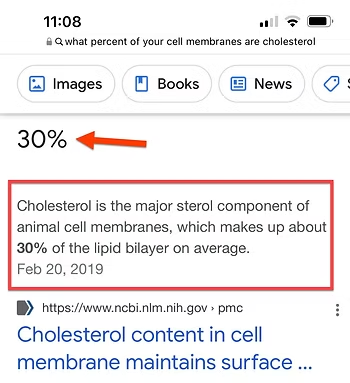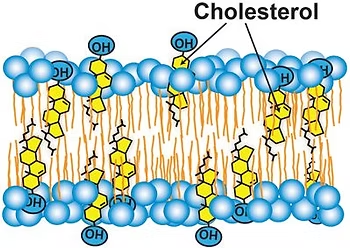Cholesterol often carries a villainous reputation when it comes to health discussions. However, this misunderstood substance is not your adversary, but rather a critical ally in the pursuit of optimal health. Let’s delve deeper into the world of cholesterol, demystifying its essential role in maintaining your overall well-being.
Cholesterol is not merely an unwelcome guest in your body; it forms an integral part of your cellular structure. A staggering 30% of your cell membranes are built from cholesterol. Insufficient levels can therefore compromise cell membrane health, leading to a cascade of physiological issues.
Our bodies are marvels of biological engineering, with cholesterol acting as a key component in every cell. Whether it’s the neurons in your brain, the hepatocytes in your liver, or the keratinocytes in your skin, cholesterol is omnipresent. If you could take a microscopic view of your cells, you’d witness a sea of yellow dots – that’s cholesterol, the silent workhorse of your body’s cellular machinery.
The Ideal Cholesterol Range: Striking the Balance
Navigating the cholesterol conundrum starts with understanding the appropriate levels. Ideally, total cholesterol levels should hover between 200 and 250. But why is it so essential, and how does it contribute to your well-being? Let’s break down the top five roles of cholesterol.
1. Nurturing Brain and Nervous System Health
Cholesterol is pivotal for maintaining a robust brain and a well-functioning nervous system. It serves as an essential component for nerve conduction and brain health, contributing to your cognitive prowess and nervous system integrity.
2. Facilitating Smooth Digestion
Cholesterol aids in digestion by playing a crucial part in the formation of bile, a substance that helps digest fats. Without adequate cholesterol, your digestion could be thrown off balance, potentially leading to discomfort and malabsorption.
3. Assisting in Fat Metabolism
When you consume fats, cholesterol steps in as a trusty assistant, helping to break down these dietary fats. This process is crucial for energy production and the absorption of fat-soluble vitamins.
4. The Backbone of Hormonal Balance
Hormones like testosterone, estrogen, and progesterone owe their existence to cholesterol. It acts as a building block for these hormones, thereby ensuring their optimal production. Maintaining sufficient cholesterol levels is crucial for hormonal balance and overall vitality.
5. Vital for Vitamin D Synthesis
The synthesis of vitamin D in your body is another area where cholesterol shines. It’s required for the production of this essential vitamin, which plays a myriad of roles in your body, from bone health to immune function.
Now that you’re privy to the critical functions of cholesterol, it’s time to shift our perspective from viewing it as an enemy to recognizing it as an essential ally in our quest for optimal health. If you found this article enlightening, don’t forget to like, comment, and share it with your loved ones. Remember, knowledge is power, and sharing it only amplifies its effect.
Frequently Asked Questions (FAQ)
Cholesterol is a critical ally, not an adversary. It forms 30% of your cell membranes, making it fundamental to the structure and health of every cell in your body, from brain neurons to skin cells. It's the "silent workhorse" of your cellular machinery.
The ideal total cholesterol level is between 200 and 250. This range supports its vital functions without the risks associated with levels that are too high or too low.
Cholesterol has five key roles: 1) Nurturing brain and nervous system health for nerve conduction, 2) Facilitating smooth digestion via bile production, 3) Assisting in fat metabolism, 4) Serving as the backbone for hormone production (testosterone, estrogen, progesterone), and 5) Enabling the synthesis of Vitamin D.









